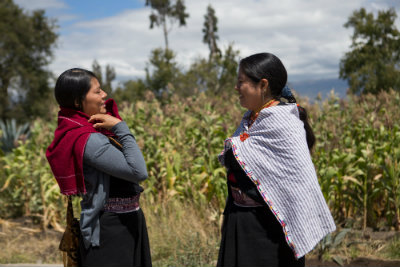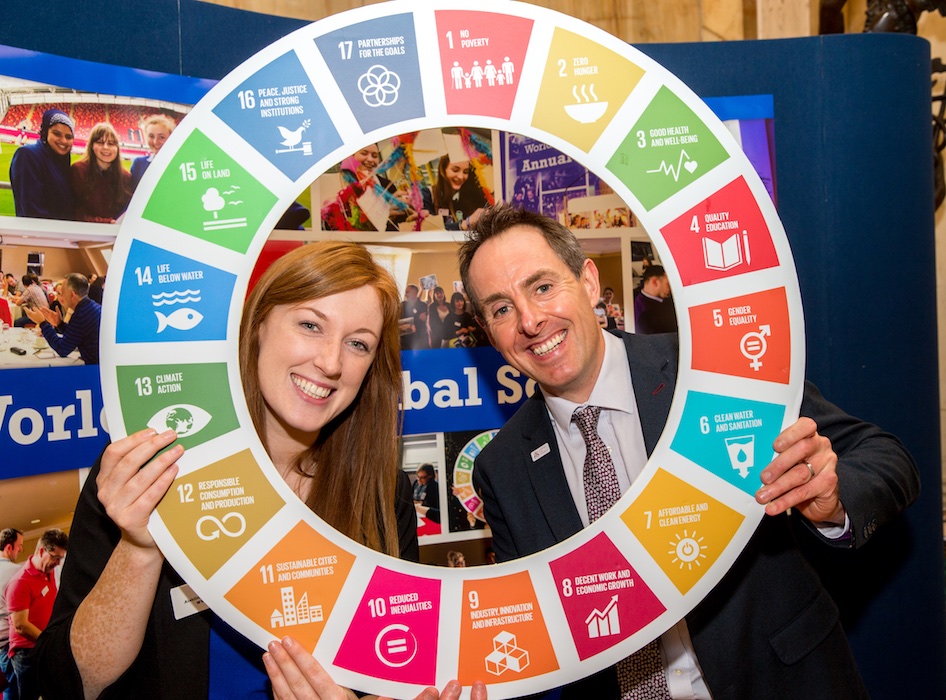International Day for the Elimination of Violence against Women 2018
Case Study
25 November 2018
Photo credit: Michelle Gachet/UN Women. Martha Chango (right) in Tungurahua province, Ecuador where she works as the Municipal Councilor of Pelileo and the Chair of the Gender Commission.
UN Trust Fund to End Violence against Women
Gender-based violence is deeply rooted in inequality between women and men and remains one of the most prevalent forms of human rights violations in the world today. According to the 2018 UN Women monitoring report, Turning Promises into Action; Gender Equality in the 2030 Agenda, gender-based violence is still a “global pandemic” and requires a global response.
The social, human and economic costs of gender-based violence are a huge obstacle to equality, development, security, and peace. Such violation can affect the health and wellbeing of survivors, with long lasting physical and psychological effects.
Through our development cooperation programme, Irish Aid, we are supporting initiatives at country and global level to address gender-based violence.
One of our global partners is the UN Trust Fund to End Violence against Women. This Fund provides grants to local civil society organisations which work to prevent and respond to violence against women and girls. In 2017 the Trust Fund supported 120 projects in 80 countries. Over 340,000 women and girls benefitted directly from legal and psycho-social services, and from empowerment activities and protection from violence.
Through the Trust Fund, AC Democracia in Ecuador, worked to promote access to justice for women and girl survivors of violence. With Trust Fund support in 2017 the organisation, along with other actors, advocated for the adoption of a new Comprehensive Law for the Prevention and Eradication of Violence against Women. This was approved in Parliament.
Ireland’s commitment to gender equality and to the elimination of violence against women and girls, is clearly articulated in our foreign and international development policies and in our support of the Sustainable Development Goals (SDGs). SDG 5 sets out key targets for achieving gender equality by 2030: “eliminate of all forms of violence against women and girls” and “eliminate all harmful practices, such as Female Genital Mutilation and early/child marriage”.


